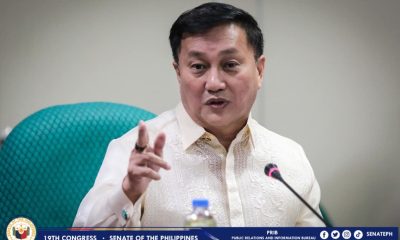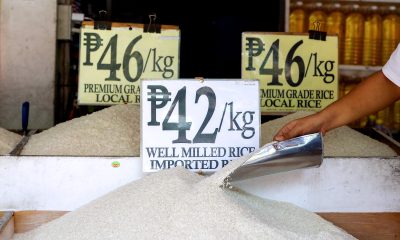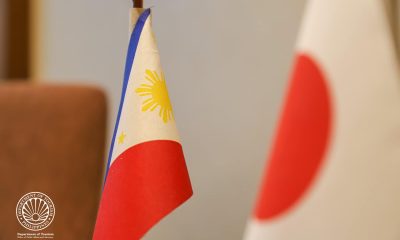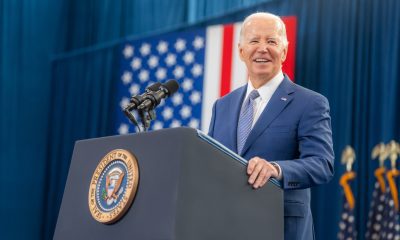News
Iranians say uncertainty over nuclear deal is bringing fear
TEHRAN, Iran — On the streets of Tehran, every day seems to bring more worry and fear ahead of President Donald Trump’s decision this week on whether to pull America out of the nuclear deal with Iran.
Exchange shop windows that once showed rates for Iranian rial to U.S. dollar transactions have gone blank, as black-market rates have skyrocketed to 70,000 rials to the dollar, far higher than the newly government-imposed rate of 42,000 for $1.
Busy shopping districts that once saw newlyweds buying refrigerators and other major appliances now largely stand empty as people save their money. Some talk openly about leaving the country for anywhere else.
“All of us are thinking about the uncertain future ahead of us,” said Mohammad Khaleghi, a 27-year-old appliance salesman on Tehran’s Amin Hozour Street. “Everybody is doing that. Everybody is afraid of the future — even myself. I do not know what is going to happen, if I can survive in this business or not. This situation concerns us all.”
The sense of foreboding gripping the Iranian capital ahead of Trump’s Saturday deadline to decide what to do about the deal is a far cry from the jubilant street celebrations that greeted the 2015 nuclear accord with world powers. Then, people spoke with hope about Iran slowly losing its pariah status with the West, cemented in the aftermath of the 1979 Islamic Revolution and the hostage crisis at the U.S. Embassy in Tehran. Others praised President Hassan Rouhani, himself a cleric, and Iran’s other relative moderates for lifting the crippling economic sanctions that choked Iran over its contested nuclear program.
Today though, few can point to any benefit of the atomic accord.
“We do not feel any particular impact especially in our economy or on our life,” said Shadi Gholami, a 25-year-old architect. “It is as if such a deal does not exist at all.”
While the nuclear deal offered a salve in allowing Iran to sell crude oil and natural gas in the international market, the deal has not helped address its high unemployment, particularly among the youth in this country of 80 million people. Banks remain saddled with massive bad loans from the sanctions era. Government corruption also remains.
“Our economic problems have nothing to do with the deal or Trump. Our problem is that our officials just think of their own pocket,” said Ladan Shiri, a 33-year-old sales manager at a private company. “If they really thought about the people and not just their own profits, our people would not have the troubles they have today. This is the main problem.”
Ali Forouzi, a 33-year-old industrial engineer, agrees.
“It is not nice to always blame others such as America and Trump for our troubles. I believe that the root of our problems is inside the country,” Forouzi said. “If we are strong enough internally, nobody can hit us from the outside, but unfortunately our problems arise from the internal system. This includes the lack of good co-ordination between our government and other bodies, as well as within the people themselves.”
Trump himself has been a divisive figure in Iran even apart from his long criticism of the nuclear deal. Though the United States is home to many Iranians, Trump included Iran in his travel bans, stopping families from getting visas to visit loved ones. Iranians also have criticized him for calling the Persian Gulf “the Arabian Gulf.”
Trump’s actions have been a boon to hard-liners within Iran’s government, who point to them as a sign that America is the “Great Satan” of the post-revolution years.
“If Trump pulls out, it will show very well to the world and to our own people how disloyal America is to its treaties and the truth will be revealed,” Forouzi said. “It may even give a better picture of us internationally because we have been committed to our promises.”
Seyed Reza Mousavi, a 58-year-old Shiite cleric, said the deal had “disarmed superpowers” and showed Iran’s strength.
“We are not scared by Trump’s decision and will resist and stand up to him without wavering,” the cleric said. “Even if he pulls out of the deal we will not be harmed. We have chosen our path and it is the United States that will be harmed, not us, if he does it.”
One way the U.S. could be harmed is in North Korea, said Alireza Yarmohammadi, the 52-year-old director of a health care and cosmetics company. North Korean leader Kim Jong Un may never take Trump seriously ahead of promised talks between the two leaders.
“It is not very easy for America to leave the deal because if it does, North Korea will not hold talks with it,” Yarmohammadi said. “They will not reach a deal with a country that is disloyal to another accord which is only 2 years old. Besides, the next president may come and say that they do not accept a previously reached deal.”
But closer to home, Iranians increasingly talk among themselves of trying to leave the country for a better life abroad. Western Europe remains a choice for those with ties there, while those with the money head visa-free to Armenia, Georgia and Serbia to buy citizenship.
“Oftentimes I think that if I want to live a better life I must emigrate from Iran,” said Gholami, the architect. “This thought is always with me.”
She added: “I wish here was a place where I could live in peace and quiet beside my friends and family. But sometimes things become so bitter that we have no choice.”






















